Have you wondered how people start online businesses and make them sustainable and successful over the long haul?
It’s a concern that most people who are just starting their entrepreneurial journey have…and I totally get it.
It can be confusing with the way the landscape of business ownership is constantly changing.
Because I can look back now and clearly see what it took for me to get to where I am today, I want to take a little time and talk about the various online business models you can use to make your business idea a reality.
Each model is pretty different and, based on your personality, how much you want to work each week, and how much person-to-person interaction you want to have, you’ll probably find that you gravitate to one model more than the others.
With this, let’s get into today’s content!
Jump straight to the business models here…
What is an online business model?
A business model explains how businesses create and deliver value. Over the years, internet business models (business models that are specific to the online world) have popped up and increased in popularity.
You see, an online business is a business that you operate online and that either serves a business-to-consumer (B2C) or a business-to-business (B2B) market. There are different types of online businesses – from service-based businesses to physical products, affiliate marketing, and digital products.
Online business ventures tend to come with several benefits, such as relatively low startup costs and high-profit margins. Some of them even make it possible to generate passive income. And as they’re online, they’re flexible, too, so that you can manage them from anywhere in the world.
Growing an internet business comes down to the right business strategy as you can use scalable internet marketing strategies like search engine optimization or paid traffic.
In this short video, I share how you can start a business online, even if you don’t have an entrepreneurial background:
The first step to starting an online business is clear: Choose the right type of business.
Here are the most profitable online business models. Let’s take a look!
What are the most successful online business models?
Below are 14 proven and popular online business models you can use to start an online business that helps you serve your niche with integrity and create the life of your dreams, today.
But which one is best for YOU? While this depends on your goals, this list is organized according to those businesses that are the easiest to start for new entrepreneurs.
I also talk about choosing a business model, so make sure you take a look after you’ve gone through all the businesses:
Without further ado, here are the best online business models ranked:
Business model #1: Freelancing
The first business model I want to discuss is a service-based business that is popular with people who have very specific skills – freelancing. Freelancing is simply a type of work where you offer your services to people or businesses that need them.
And it’s an in-demand career choice. 34% of US workers, or 53 million people, now freelance.
Some popular freelancing careers include writing, graphic design, website development/design, and other service-based fields. If you’re really good at what you do, you could find yourself making money in only a few days after starting this self-employed career path.
If you’re looking for quick income, you’ll have a tough time finding work that’s simpler and easier to get up and running online than this one. Essentially, you can take tasks you perform at work (be it social media management, writing, or even Excel skills) and start freelancing right away.
You don’t even need your own website because you can go to niche-specific forums and freelancing websites like Upwork to create a profile.
But you’ll want to get away from sites like these as quickly as you can, though, because a fair amount of the clients on these sites bid for work based on price alone. The last thing you want to do is spend the majority of your new career working for pennies!
Other options for finding clients include promoting your services on LinkedIn, being part of industry-relevant online forums, and sharing your services with your network.
Advantages of freelance businesses
The advantages of freelancing are clear. You can start a freelancing business with little experience in building a business. (You do need experience in the field you’re freelancing in, though.) The startup costs are low, as are the barriers to entry.
Disadvantages of freelance businesses
Be fairly warned: Freelancing requires effort. It’s still work – even though you’re working for yourself. And you’re going to want to stay on top of your skills by either being active in some kind of peer-related group or attending industry-specific events during the year.
How to start a freelance business
How do you ultimately start a freelance business? The easiest way to get started is to sign up for a platform like Upwork or tap into your network. Your old employers, friends, and family are all potential clients.
To learn more, this in-depth guide on freelancing can help you get started.
Business model #2: Coaching / consulting
The coaching/consulting space is where I decided to jump in when I was starting my own online business while still in my 9-5.
As a service-based business, it’s a lot like freelancing. The main difference, however, is that as a coach or a consultant, you don’t offer done-for-you services. Instead, your work is to provide actionable advice to your clients.
You’re not doing the actual work for them; you’re telling them what they need to do or how they need to be thinking about their life or their business.
Because of how much value you’ll be bringing to the table, coaching/consulting is one of the fastest ways to build an online business that will replace your corporate income and allow you to leave your 9-5.
If you have specialized knowledge that can help people or businesses be more effective in a specific area or areas, coaching or consulting might just be for you. Coaching tends to pay more because of how specialized and valuable your knowledge base has to be.
There are coaches and consultants in just about every niche. There are…
- Financial coaches/consultants…
- Tax coaches/consultants…
- Interior design consultants…
- Marketing coaches/consultants…
- Marriage coaches/consultants…
- Copywriting coaches/consultants…
…and the list goes on and on. If what you know can help individuals or companies grow and do whatever they do better, you might be a great fit for coaching or consultancy. Get the Ultimate Guide
for building a
6-Figure Coaching Business so you can achieve more freedom!
The reason this is one of the easiest businesses to start is that you can build a very profitable business without having to invest a lot. If you’re in a 9-5 and new to business, that’s a pretty attractive reason to start with coaching.
Think about it: If you charge $1,500 for a coaching package, you need just a few to replace your salary and quit your 9-5.
Plus, you only need your existing skills to get started. And those are skills you might have learned in your day job or on your own. (Think career coaching or health coaching.)
You don’t even need a website. That’s right, you can get started with your laptop and an internet connection. Most people won’t care if you have a website or not (what they care about are the results you help them get). But even if they ask to see one, you can always send them to your LinkedIn profile.
Advantages of a coaching business
A service-based business is an online business model that’s easy to start because you can draw on your experience in your job or other skills you have to give other people advice on how to achieve results. Startup costs are low and you can turn a profit fairly fast so that you can replace your salary and go full-time in your business.
What’s more, this is a high-impact business because you’re working one-on-one with your clients, helping them achieve their biggest goals.
Disadvantages of a coaching business
As such, a coaching business isn’t scalable. You need to turn to another business model, such as group programs or online courses to scale your business after you’ve filled your business with private clients.
How to start a coaching/consulting business
The best marketing model for new coaches is to tap into your network, spread your expertise on podcasts or on a platform like LinkedIn, or join existing communities on social media.
However, for the specific steps to get started, check out my guide on how to start a coaching business.
Alternatively, watch this quick video where I share how you can start your coaching business in the next 24 hours (yes, it can be that simple):
Business model #3: Group programs
Another business model that lots of solo entrepreneurs gravitate to is group programs. In the groups programs model, you’re doing coaching or consulting, but you’re doing it in a group setting.
The beauty of this kind of business model is that the group, while relying on you for your expertise, also feeds off of the strengths of the other members. Their participation is just as important as yours and creates a beautiful dynamic between members when it’s properly managed.
Just like with coaching and consulting, group programs can happen in nearly any niche.
They can take a lot of time and patience to create, build, and grow, but group programs can pay you really well once you figure out your pricing structure and how often you want to run new groups.
Also, group coaching is relatively difficult to start from scratch unless you have proof that your coaching works. You need to build relationships with more people than you’d need to if you sell individual coaching.
That’s why it’s a good idea to first start a one-on-one coaching/consulting business. Once you’re at the level where you can’t take on more private clients, you can switch to group coaching and scale your offers.
Advantages of group programs
Group programs are scalable and highly profitable. For instance, if you sell packages at $3,000, you only need to sell three packages to make six figures a year. Because you don’t have a lot of costs, your profit margins will be high.
Disadvantages of group programs
This internet business model is fairly difficult to set up as a new entrepreneur unless you have an existing audience.
How to start a group program business
If you have an existing audience, you can market your group program directly to them. Otherwise, I recommend using the same marketing model as you’d use when building a coaching business.
To start a group program business, take a look at my guide on group coaching.
#4: Agency
The agency model is a more scalable form of freelancing. However, instead of doing the work yourself, you’re outsourcing it to your team.
You can take your agency to multiple six figures, seven figures, and beyond.
You don’t need much to start an agency. But it takes plenty of experience to run an agency that offers real value to its customers.
First of all, if you do it in the wrong way, your profit margins will be low. That’s because agencies are people-focused businesses and your biggest cost will be your team.
Second, unless you have a good amount of experience, you just won’t be able to offer the level of results you need for long-term success.
That’s why a freelancing business or a coaching/consulting business are better starting points for new entrepreneurs. Plus, these online business models have fewer startup costs. Once you’re at the level where you’ve filled your pipeline with clients, you can turn your business into a more scalable agency model.
Advantages of an agency business
An agency business is a scalable business that can be profitable if you build it in the right way. The barrier to entry isn’t too steep, so it’s a good business model for people who already have experience in freelancing, coaching, or consulting.
Disadvantages of an agency business
Agency businesses can also be highly unprofitable and become incredibly time-consuming. To avoid any of these, it’s so important that you have initial experience in building another business.
How to start an agency
The best way to start an agency business is to tap into your existing network, audience, or pool of clients. There are obviously ways to scale your business but those are the most high-impact strategies with the highest return in the shortest amount of time.
For all the steps that go into building an agency, take a look at this in-depth guide on starting your own agency business.
Business model #5: Creator / influencer
The creator economy is up-and-coming with the influencer market valued at $16.4 billion. And no wonder – there are plenty of ways you could let your creativity shine on social media. Creators can make money through the YouTube partner program, from brand partnerships on Instagram or TikTok, thanks to promotions on podcasts, donations on Patreon, or subscriptions on Substack.
Now, making money online through any of these platforms takes time as you first need to build up a loyal following. Without an audience of hundreds of thousands, you likely won’t be able to monetize your channel to the extent you need to build a sustainable income. But once you have one, you’re likely to have high profits because a creator business tends to have relatively low expenses.
However, one big downside is that it’s a somewhat unpredictable model. As an influencer, you rely on advertisers, as well as the platform where you establish your brand. That’s why it’s a good idea to diversify your income with additional offers, such as courses.
Advantages of a creator business
Creator businesses have several benefits. They’re fun, creative, and can be highly profitable. You build your own brand and an audience to which you can sell different offers – from courses to physical products. Get the Ultimate Guide
for building a
6-Figure Coaching Business so you can achieve more freedom!
Disadvantages of a creator business
Creator businesses are fairly difficult to establish. Creating a personal brand is demanding and building an audience takes time. Unless you build other revenue streams, you’re dependent on brand partnerships.
How to start a creator business
To become an influencer, start posting consistently on one or two platforms, such as TikTok or Instagram. Brainstorm new content ideas and angles to keep yourself top-of-mind.
For more steps on how to start a content creator business, take a look at this guide by Later.
Business model #6: Ecommerce business
Ecommerce is a $5.7 trillion market. And the ecommerce business model is a popular one.
You can set up an online store using a shop builder like Shopify or create one on Etsy and start selling physical products online. What’s more, Amazon FBA offers another option to set up your own ecommerce store.
There are also plenty of tools to promote your online store. You can use Kickstarter to fund your project or start driving paid advertising or traffic from search engines to grow it.
That said, physical products do come with a big challenge. You see, you first have to develop a product. Then, you need to buy inventory (so that you can sell your products without having to tell customers that their orders will be significantly delayed), and last, you also need to ship your orders.
All in all, ecommerce costs tend to amount to $40,000 in the first year alone. Inventory and manufacturing amount to 31.6% and shipping to 8.7%.
Plus, physical products are often not high-priced products. If you make a $50 profit on your product, you need to sell 40 of them to make $2,000.
So while an online store can be really popular and scalable, you might be better off starting a business with low startup costs if your goal is to build a business as fast as possible.
Advantages of ecommerce businesses
Physical products are highly scalable once you have a supply chain in place. If you know how to grow your business and brand, you can build a profitable online business. Amazon FBA can take away some of the challenges of setting up online stores.
Disadvantages of ecommerce businesses
Ecommerce is difficult to build into a sustainable business. It’s not a great business model for those just starting out because you need a lot of volume to build a business.
How to start ecommerce businesses
The first step in becoming a vendor online is to develop a product that fills a market need. Then, you need to find a manufacturer to produce that product. And finally, a shipping company to ship it to your customers.
For the specific steps, read this guide by Shopify on how to get started in ecommerce.
Business model #7: Dropshipping
Dropshipping is a more flexible alternative to other ercommerce business models.
A dropshipping business is one of several ecommerce business models, but instead of manufacturing a product, you send it straight to the end consumer from a third-party seller.
In other words, you don’t have to incur those extra costs like manufacturing and shipping.
But while the business model is attractive, dropshipping has a scammy reputation. Too many people have misused it. And unfortunately, most dropshipping products are not high-quality products, which means that you’re not really offering value to your potential customers.
What’s more, dropshipping works just like ecommerce – you can only charge so much for your products and need to sell many of them to increase your revenue. With those factors in mind, this isn’t the best business model for new entrepreneurs.
Advantages of dropshipping
Dropshipping is a fairly “hands-off” business because if you find a good supplier, you don’t have to worry about manufacturing or shipping.
Disadvantages of a dropshipping
Most suppliers don’t deliver quality products. Plus, you still need to build up a robust system that offers enough revenue to make this business model profitable.
How to start dropshipping
First, you need to find a product that meets customer demand. Then, you need to find a dropshipper and finally, sell that product. This guide by Shopify shows you the ins and outs.
Business model #8: Information products / online courses
If you are great at teaching people through written, video, and/or audio format, you might consider creating and selling information products online and delivering them to your customers via an online course.
With an online course, you teach a skill or strategy to your students. And they can be in very niche markets. There are digital products on topics like building tiny houses, calligraphy, and singing.
The best part about an online course business is that you can build a scalable business. You see, an online course is an asset you can sell over and over again.
Courses are one of the main reasons I’ve built a business that lets me work a few hours a week while helping 1000s of people start their online businesses. (You can read more about my journey here.)
However, this business model takes time to build. A faster route is to first build a service-based business and then turn your coaching or consulting methodology into an online course.
In this short video, I explain why I’d choose the coaching route before getting started with courses:
Advantages of a course business
A course business is one of the most profitable internet business models out there. You create an asset that can be sold many times over without additional costs.
Disadvantages of a course business
Information products take time to create and build. You need an existing audience or a good amount of traffic to build a sustainable business.
How to start a course business
The first thing you need to start your course business is a methodology to teach. (That’s why I actually recommend that you start coaching first and then turn your system into a course.) Then, you need to build an audience.
To learn more, read my guide on how to create a profitable online course business.
Business model #9: Blogging
A blogging business is all about building a blog and then monetizing it in different ways. This could be through advertising, affiliate offers, or digital products – a mix of many other business models.
Most blogs are niche sites that focus on specific topics, such as gardening, business, or career advice. Blogs can have high profit margins as they don’t require other costs than website-related costs. And ultimately, you can earn passive income (not that any income is truly passive, there’s always some work involved in making money online).
At the same time, you need to grow your blog’s traffic. You need organic search traffic and traffic from other traffic sources (such as social media) to even start turning a profit. And that traffic takes time to build.
That’s why blogging is a better business model once you’re more experienced in building website traffic.
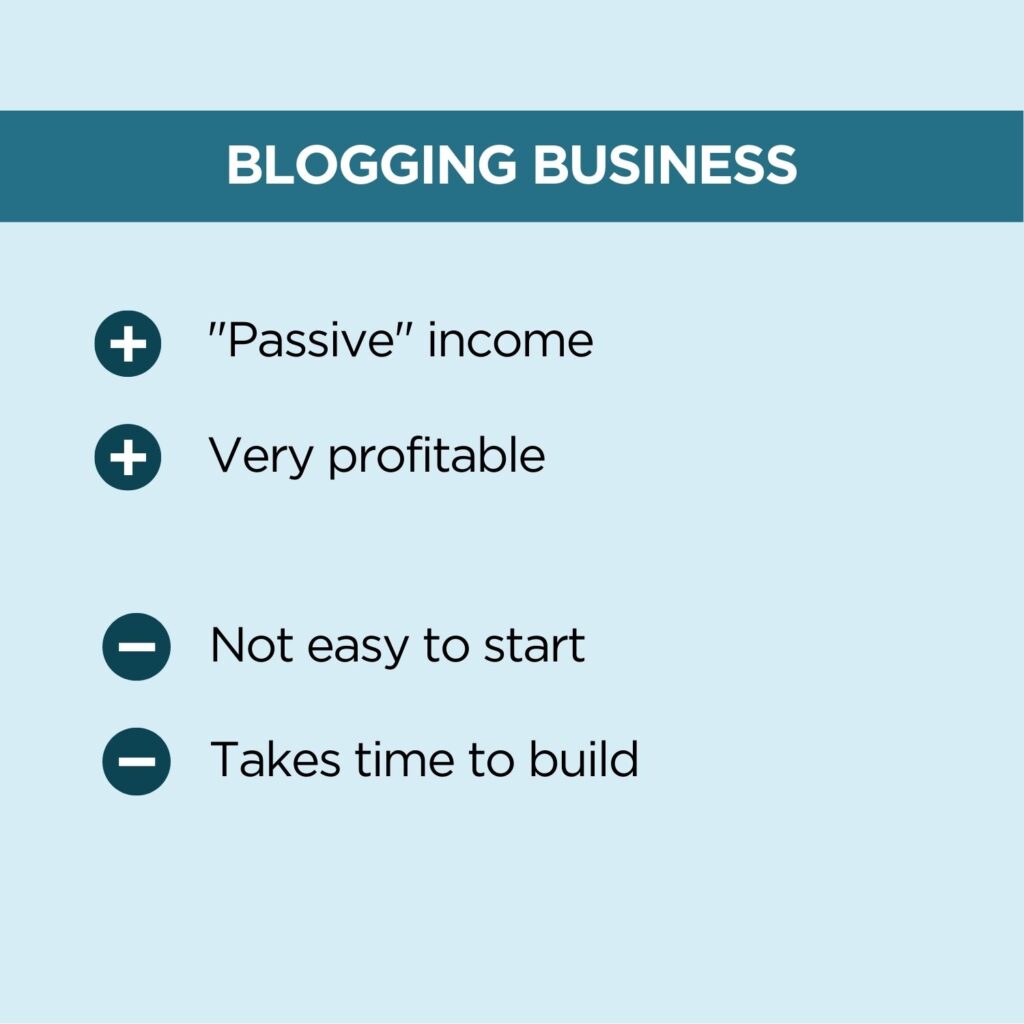
Advantages of blogging
Blogging is a scalable business that you can build to a point where it runs in the background and earns money from passive income streams like affiliate offers.
Disadvantages of blogging
A blog takes a long time to build because you need a lot of traffic to create a profitable business. Learning how to drive traffic is a skill in itself so this is not a beginner-friendly business model.
How to start blogging
The first thing you need as a blogger is a niche. Then, a blog. And finally, a mix of social media and organic search engine traffic. For more steps on how to build a blog, check out this guide.
Business model #10: Affiliate marketing
Affiliate marketing is a $12 billion industry. It involves selling someone else’s product and getting a commission for it. Typically, you build your affiliate business through a blog, YouTube, or another social media channel. For the best results, you’ll focus on a niche market (like software or supplements).
The affiliate business model can be profitable. After all, you don’t have your own products to develop, so you could even earn passive income.
At the same time, it takes time to build up the traffic or following you need to make a proper income from affiliate marketing. And you first need to learn how to drive that traffic.
As a result, affiliate marketing isn’t the best online business model for beginners – but it can be a great way to make money online once you know how to drive traffic to your website.
Advantages of affiliate marketing
Affiliate businesses can be highly profitable. This is also the most “passive” internet business.
Disadvantages of affiliate marketing
You need a lot of traffic to make your affiliate offers work. After all, you get a small percentage of each sale, so you need to find a good offer and build traffic to that offer.
How to start affiliate marketing
As an affiliate marketer, you typically build niche websites that promote your affiliate offers. First, you need to find the right offer. Then, start a website and drive traffic to that offer from search engines or even through paid traffic. This guide by Ahrefs will help you get started.
Business model #11: Subscription / membership model
A membership site is a model that relies on having some very specific knowledge and then having people pay you a fee to be a member. This is called the subscription model or membership model.
There are plenty of variations of this model.
Some provide a physical newsletter that members get every month. There may or may not be any interaction with other members.
On the other hand, the feeling of community and mastery-level feedback might be the biggest selling point for certain types of memberships or subscription services.
Membership sites are pretty simple to set up because you can run your business as a membership website with a forum on a WordPress website or have a Secret Group on Facebook that only paid members have access to.
Whatever you decide to do, you’ll want to do a lot of research beforehand to make sure that there is a market and a need for what you want to offer. It can be a very lucrative model with as much time investment as you’re comfortable doing after you get it up and running.
At the same time, a membership model is far from generating passive income. Keeping your community engaged takes a lot of effort. You might even need to hire contractors to take care of parts of your group.
That’s why it isn’t the best business to get started with, simply because there is often a lot of churn involved (people subscribing and then unsubscribing after a few months). It’s a model you can add on to your existing business once you have a stable and sustainable coaching or course business.
Advantages of a subscription business
A subscription business can be scalable while being a relatively low-maintenance business.
Disadvantages of a subscription business
Subscription businesses tend to have high churn so you need to consistently get more people into your program. If you’re looking for a high-impact business model, a coaching or group program model might be better alternatives.
How to start a subscription business
First, you need to develop a membership program to sell. The next step is to grow traffic to that offer or promote it to your audience. Different traffic channels include social media and traffic from search engines.
To learn how to grow a membership site, take a look at this guide by Kajabi.
Business model #12: Online marketplace
Next up: Online marketplaces. This is a rapidly growing online business model that you build to serve two sides: Vendors and buyers. Think businesses like Airbnb, Upwork, or Uber.
There are different no-code tools that can help you set up a marketplace, such as Sharetribe. So, the technical side isn’t that complicated.
However, marketplaces are really demanding to build. You need to first attract one side of the platform (vendors) and then get enough buyers to keep vendors on the platform. In other words, you need to know how to build two audiences – and it takes time to learn how to grow even one!
Plus, it’ll take time to create a profitable business.
All in all, while they can be highly lucrative once they attract enough people, marketplaces aren’t a great business for small business owners.
Advantages of a marketplace
Marketplace businesses are relatively new internet business models. With that, there is a lot of room for conquering different niches. And once you’ve successfully built a marketplace, you can scale it relatively easily and build a profitable business.
Disadvantages of a marketplace
Marketplaces are difficult to build, especially if you have no experience in building businesses, driving traffic, and growing brands. A marketplace is not a great option for new entrepreneurs, especially if you’re looking to quit your 9-5.
How to start a marketplace
You first need an idea and build your marketplace website, your “minimum viable product.” Then, you need to establish market-product fit – that there is a market for your idea. And finally, you’ll start promoting your marketplace.
Read this guide on starting a marketplace for all the details on how to build this type of business.
Business model #13: Apps
Revenue from apps is estimated to grow to $613 billion by 2025, with the biggest segments being games, networking, and entertainment.
In other words, app businesses are booming. That’s why it’s a popular business model used by social media platforms, app-based businesses like Uber, and gaming companies.
However, as with software businesses, you need to have a programmer on the team to help you build an app. (Unless you already have those skills.)
You also have to scale your app fast because your revenue will depend on small in-app purchases or a monthly fee. Learning how to grow your business takes a lot of time. You might even need funding to bring your idea to life because you won’t achieve much without critical mass.
This isn’t the best online business model for new entrepreneurs. By first working on a less resource-intensive online business, you’ll be able to grow your revenue faster and ultimately, launch and grow an app.
Advantages of apps
Some of the biggest businesses in the world are app businesses. Apps are scalable, profitable, and can be created in diverse industries.
Disadvantages of apps
App businesses require both technical and business know-how. As an app entrepreneur, you absolutely will need experience from building another business. Otherwise, it’ll be very difficult to reach the scale you need to make your app successful.
How to start an app
To start an app business, you need an idea, after which you need to code (or hire someone to code) your app. Once you’ve launched your app, you’ll need to execute a growth plan to quickly grow your app’s user base.
This post on app development gives you all the details.
Business model #14: Software-as-a-service
Software-as-a-service or a SaaS business model is a business created around a software product. Users then pay a monthly fee to use the software. Just think of companies like Slack or Zoom – both are SaaS businesses.
Overall the software business model is one of the most profitable online business models. Your business is highly scalable and your software is an asset that you can sell many times over.
But what does it take to build a SaaS business? While there are more no-code tools out there these days, you still need to have a software developer on the team.
Plus, a software business takes time to build. First, you need a “minimum viable product.” Then, you need to launch it, build up a customer base, and scale your business.
That’s why a SaaS business isn’t the best online business model for beginners because it’ll take time to build.
Advantages of a SaaS
Software businesses can be quite profitable and scalable. After all, lots of big startups and more established businesses have built their businesses with this business model. A software is a digital asset that you don’t have to tailor to every individual customer.
Disadvantages of a SaaS
Software businesses are one of the more advanced business models. You’ll need to develop a great SaaS and sell it – something that’s not easy to do without a lot of external funding. This business model requires investments and takes time to build into a profitable business.
How to start a SaaS
The biggest thing for a SaaS business is an in-demand idea that people want to pay for not just once but on an ongoing basis. You also need to develop your software and start selling it, first as an MVP and later as a full-fledged software product. Get the Ultimate Guide
for building a
6-Figure Coaching Business so you can achieve more freedom!
This post on how to start a software business even if you have no experience is a pretty good run-through on how to build a SaaS.
Over to you!
There you have it! These are the best online business models.
Putting it all together from start to finish is where a lot of people get tripped up…but it doesn’t have to be that way for you. Take one step at a time and start with the end in mind.
Which of these online business models are you excited to start with?
Let me know in the comments!
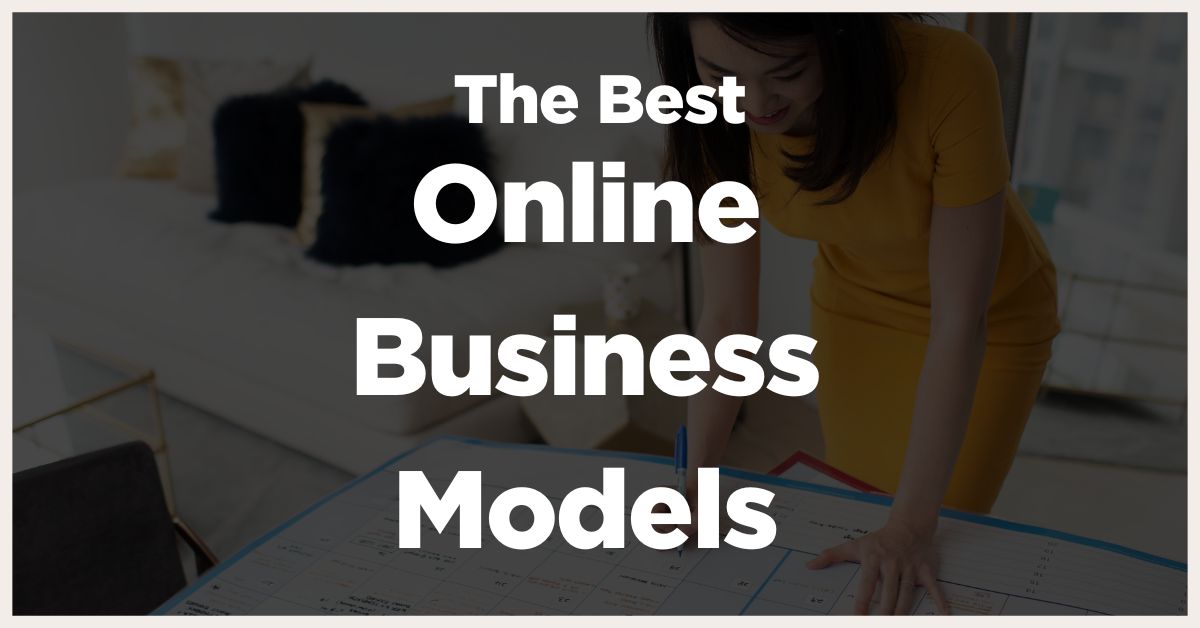

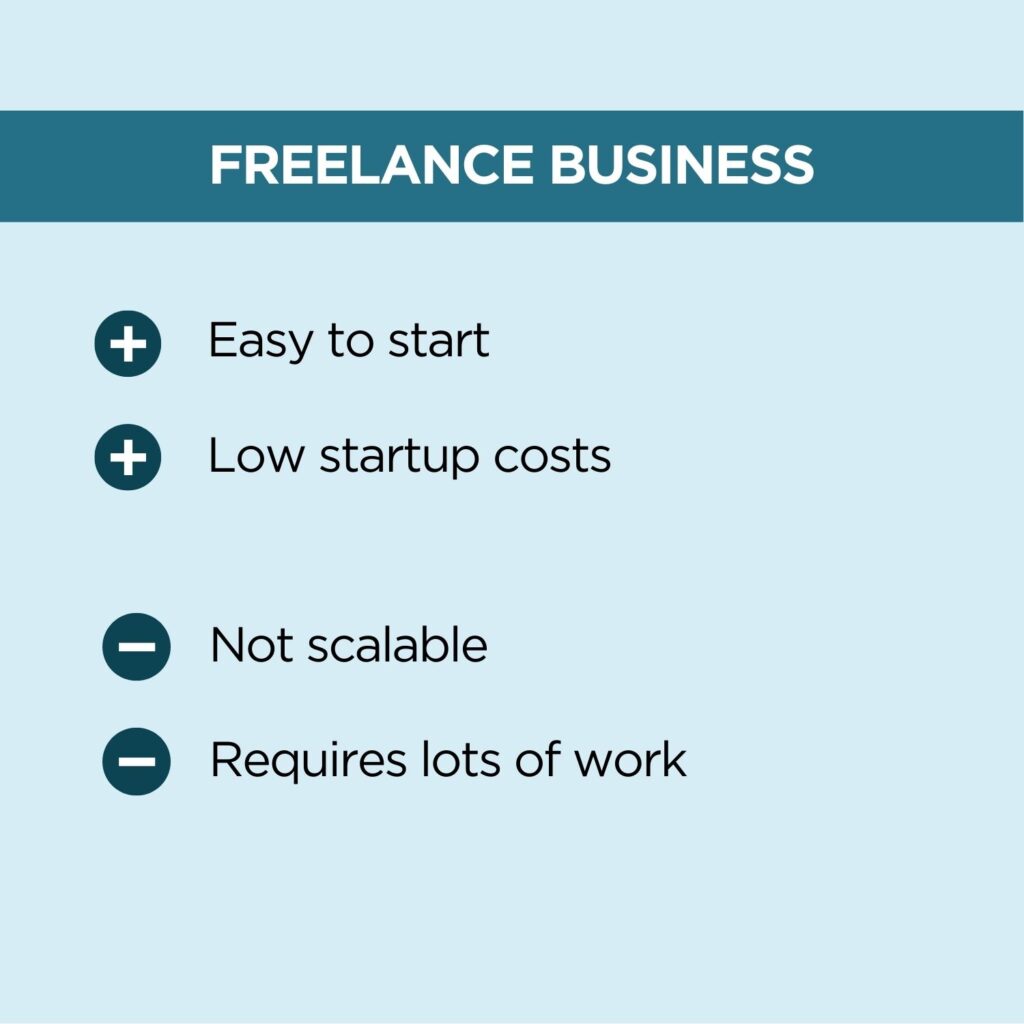
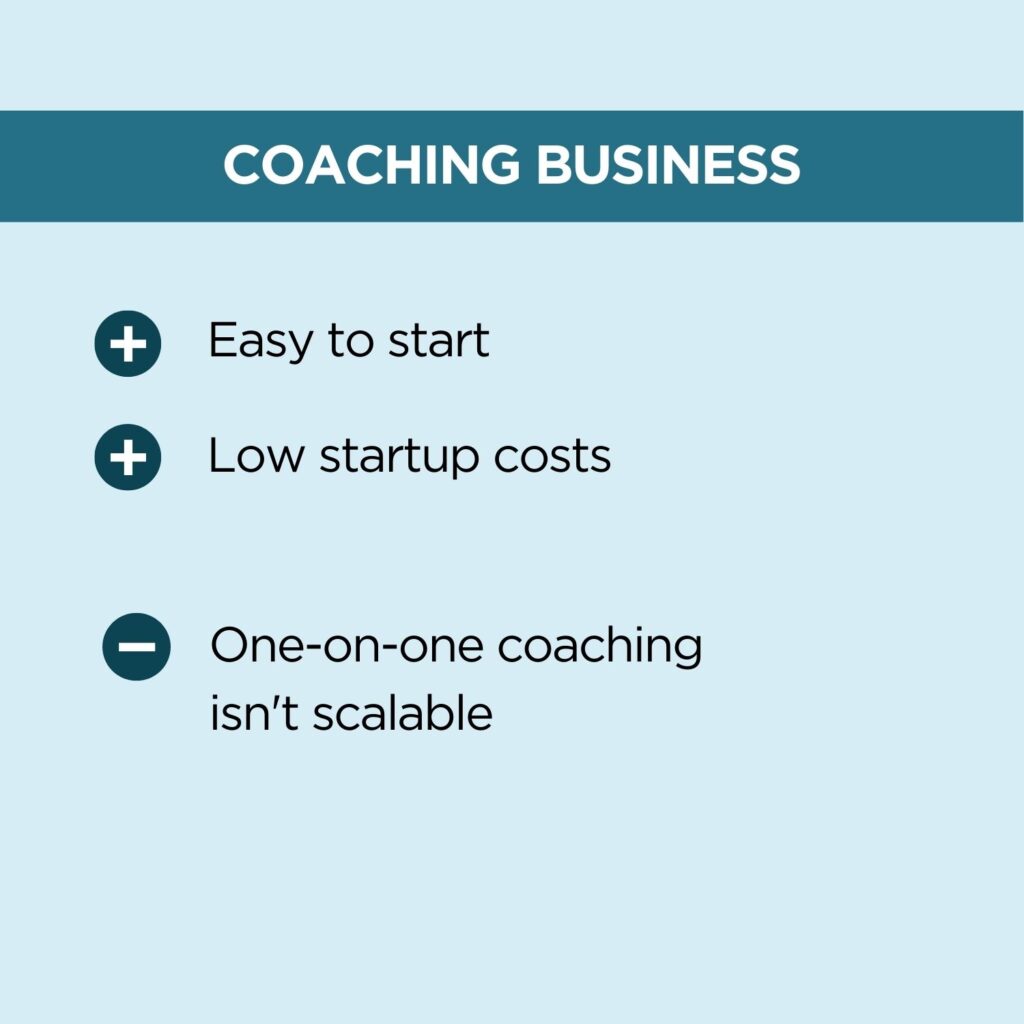
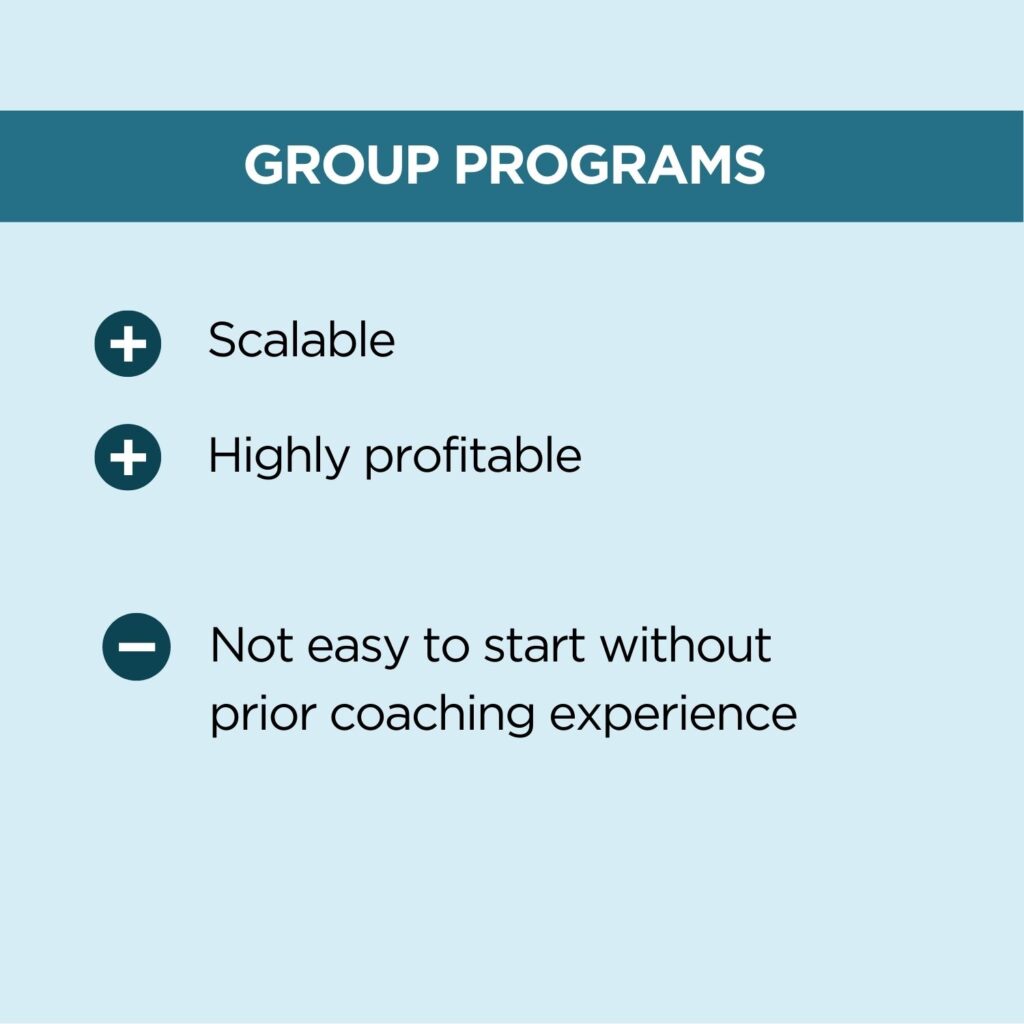
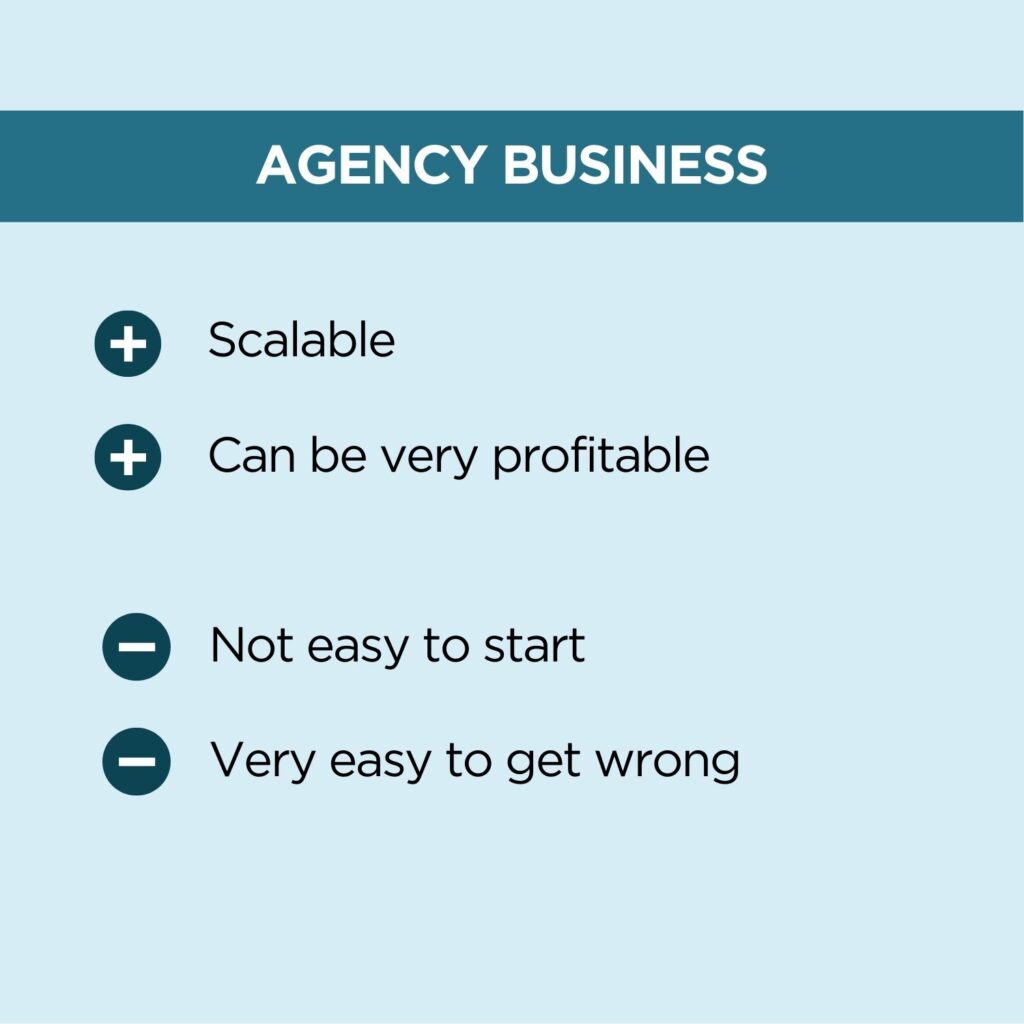
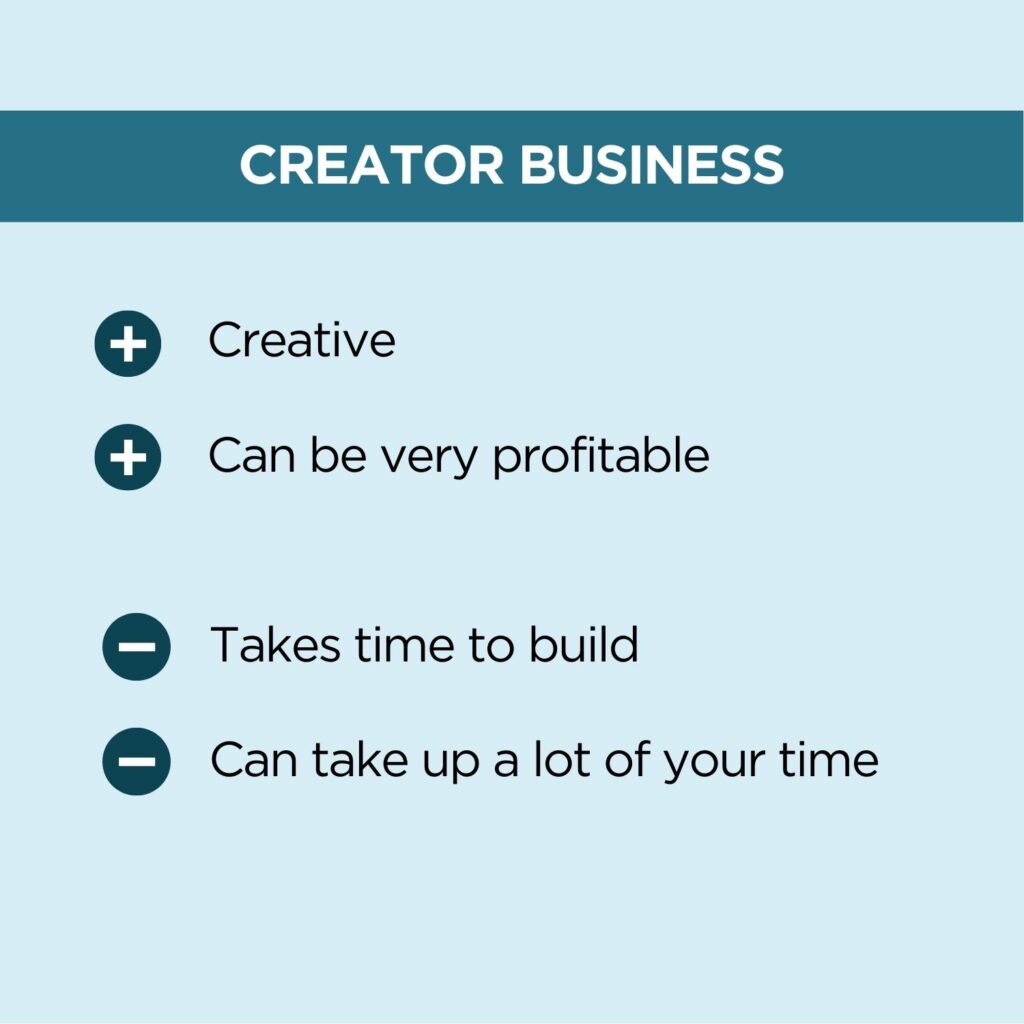
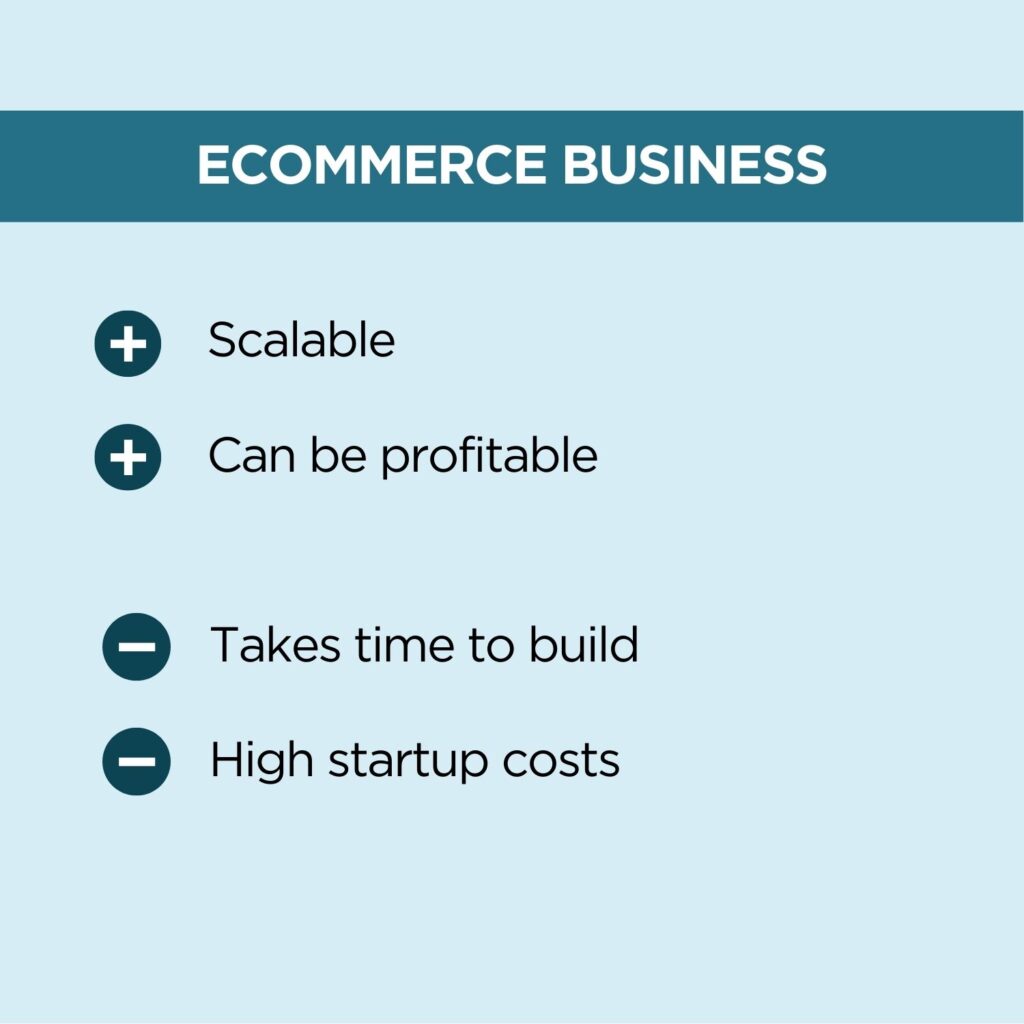
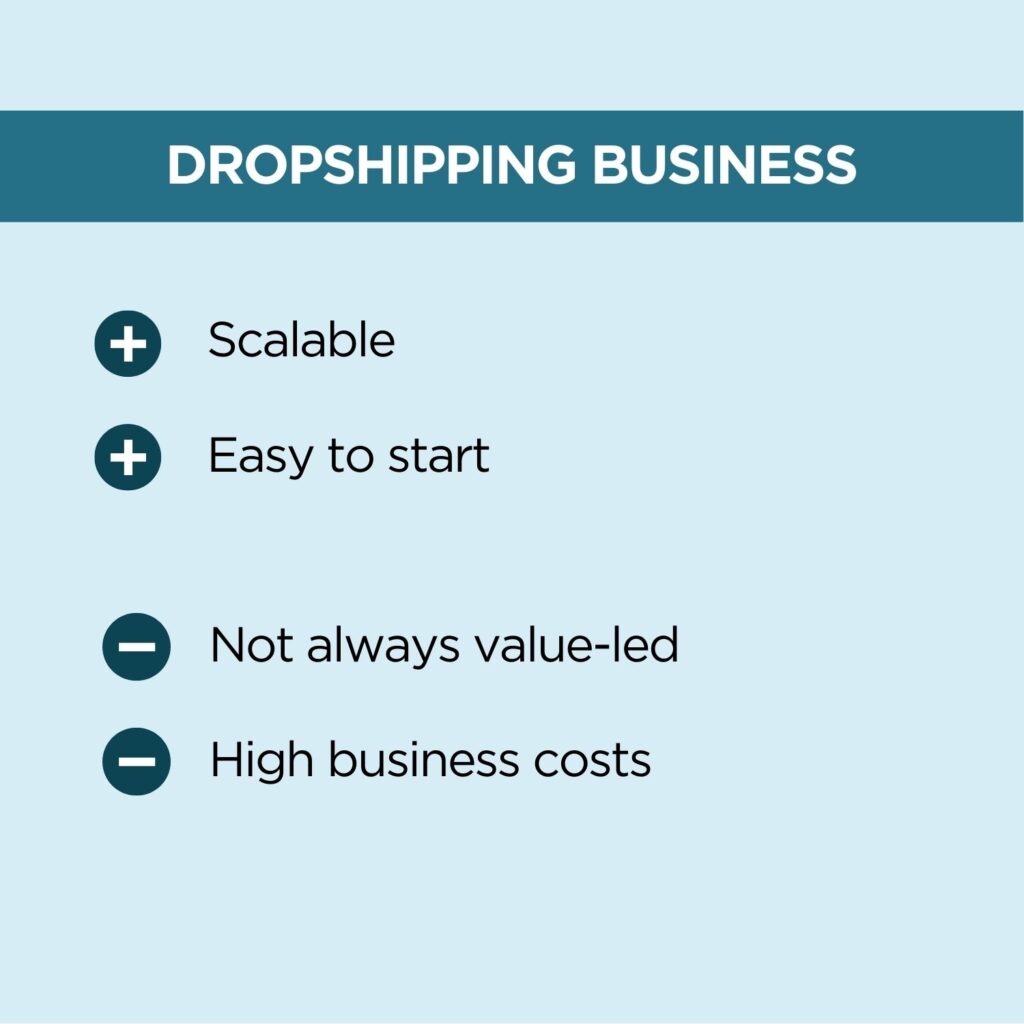
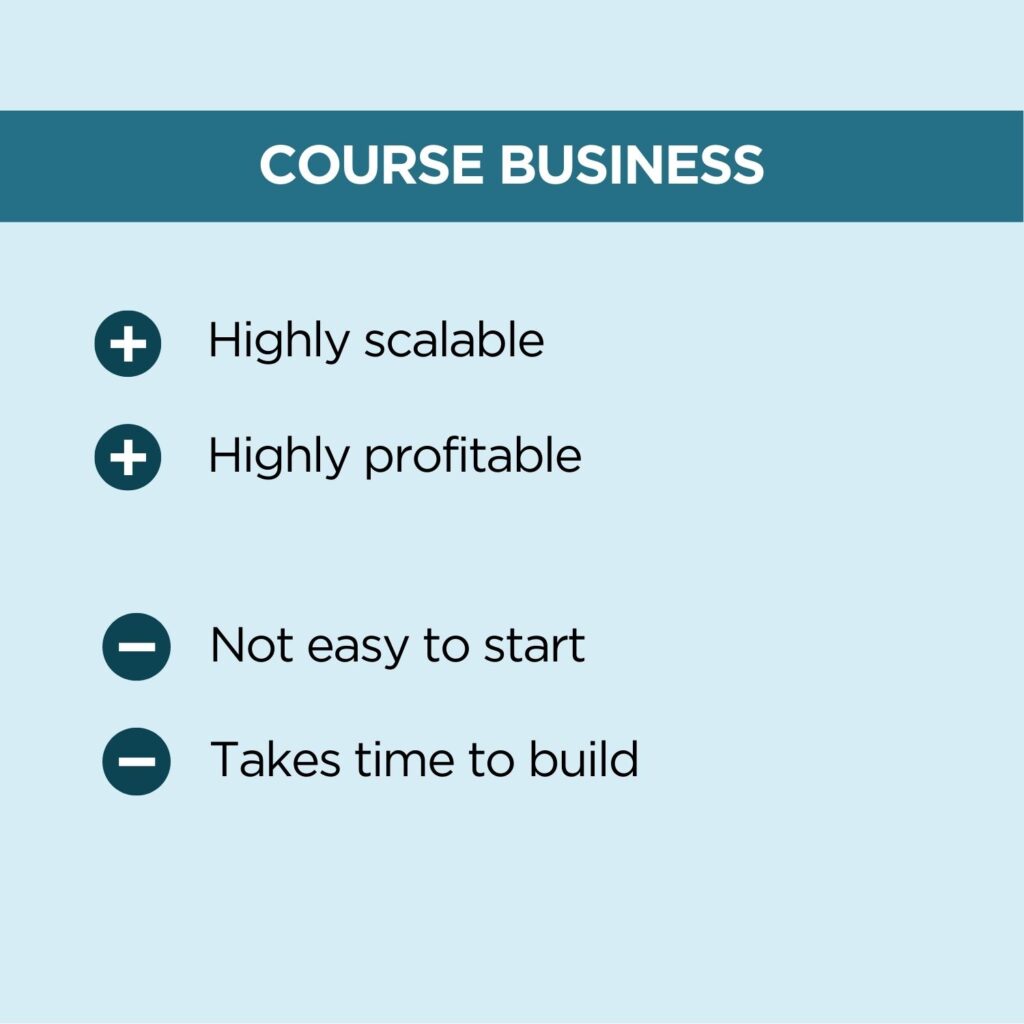
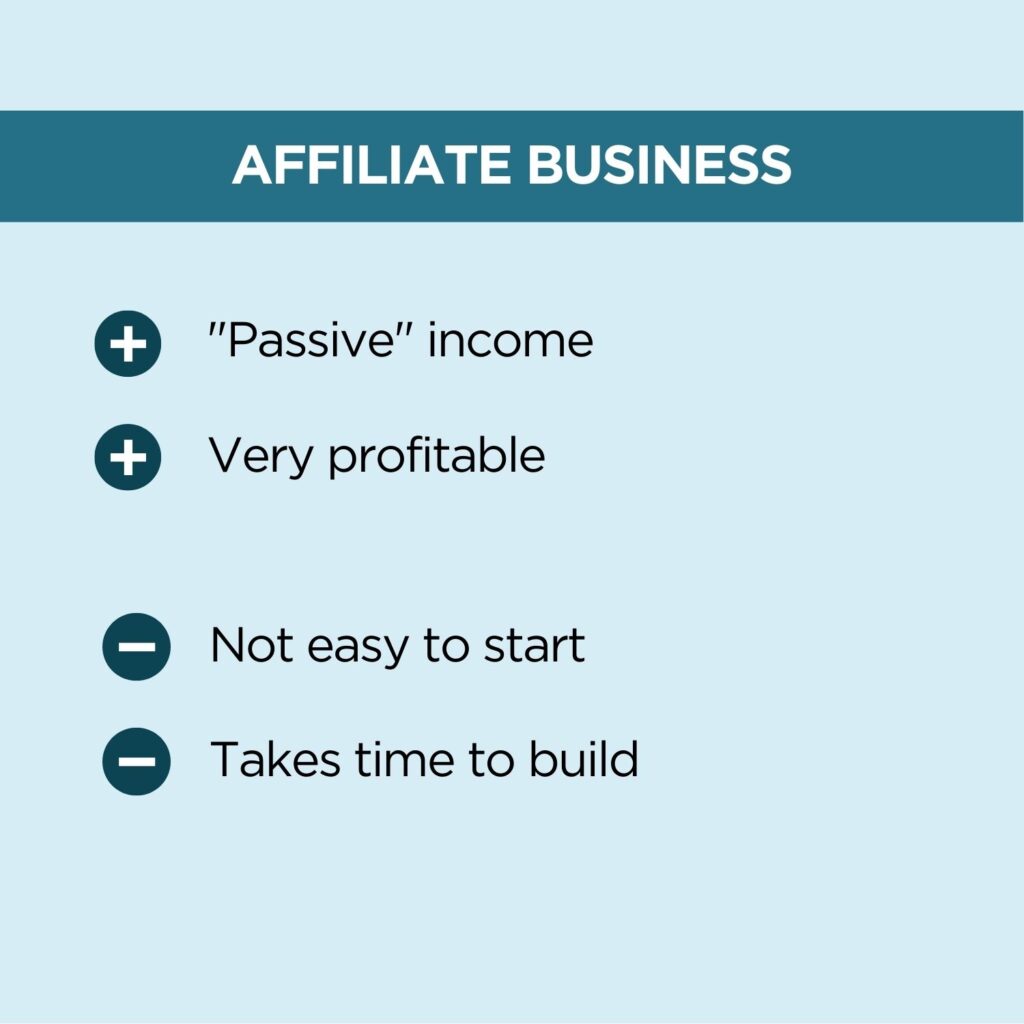
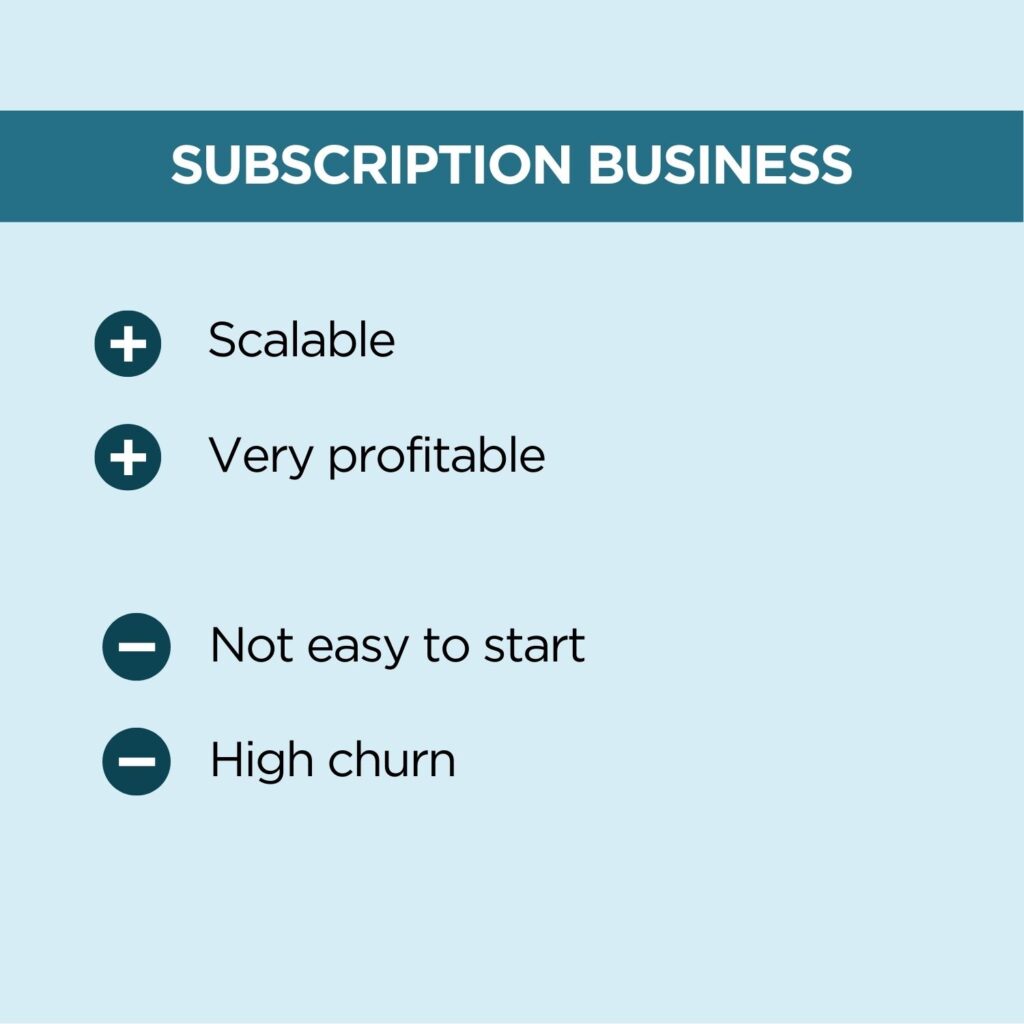
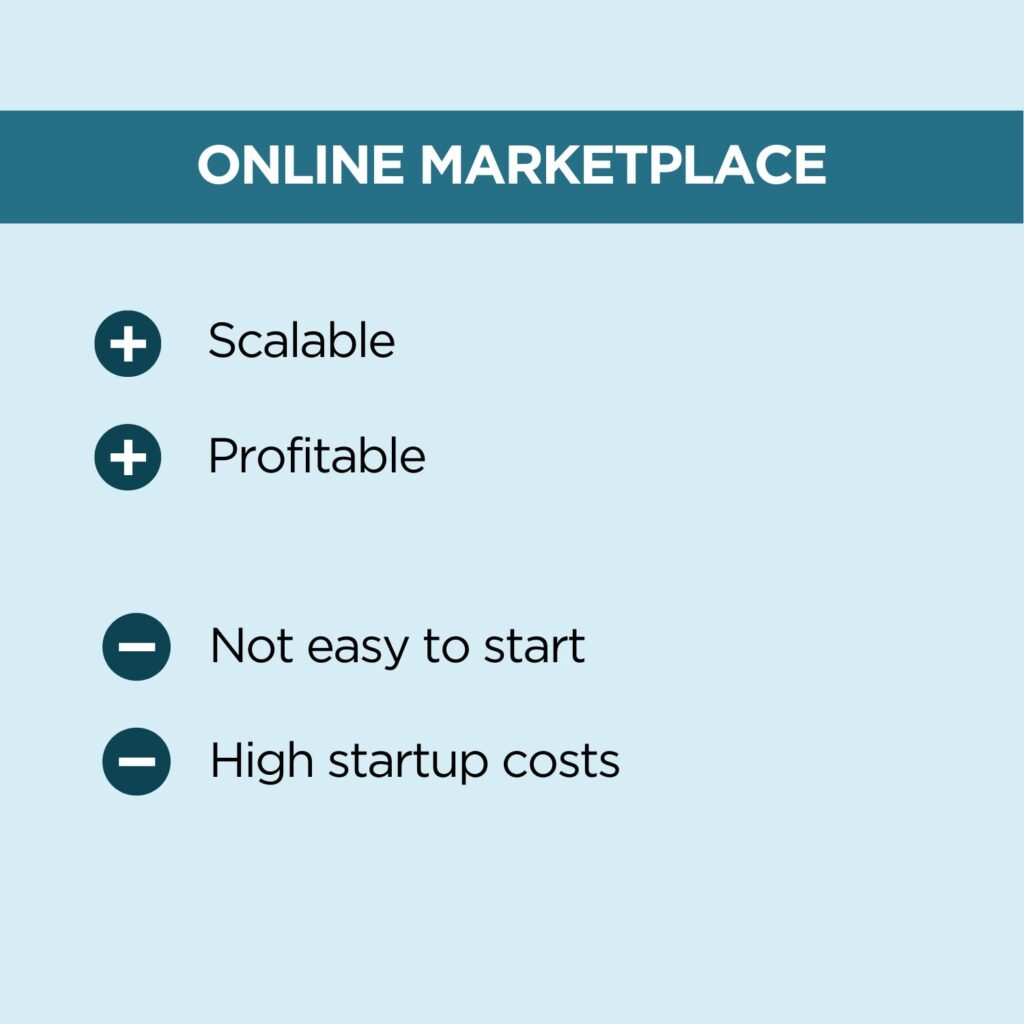
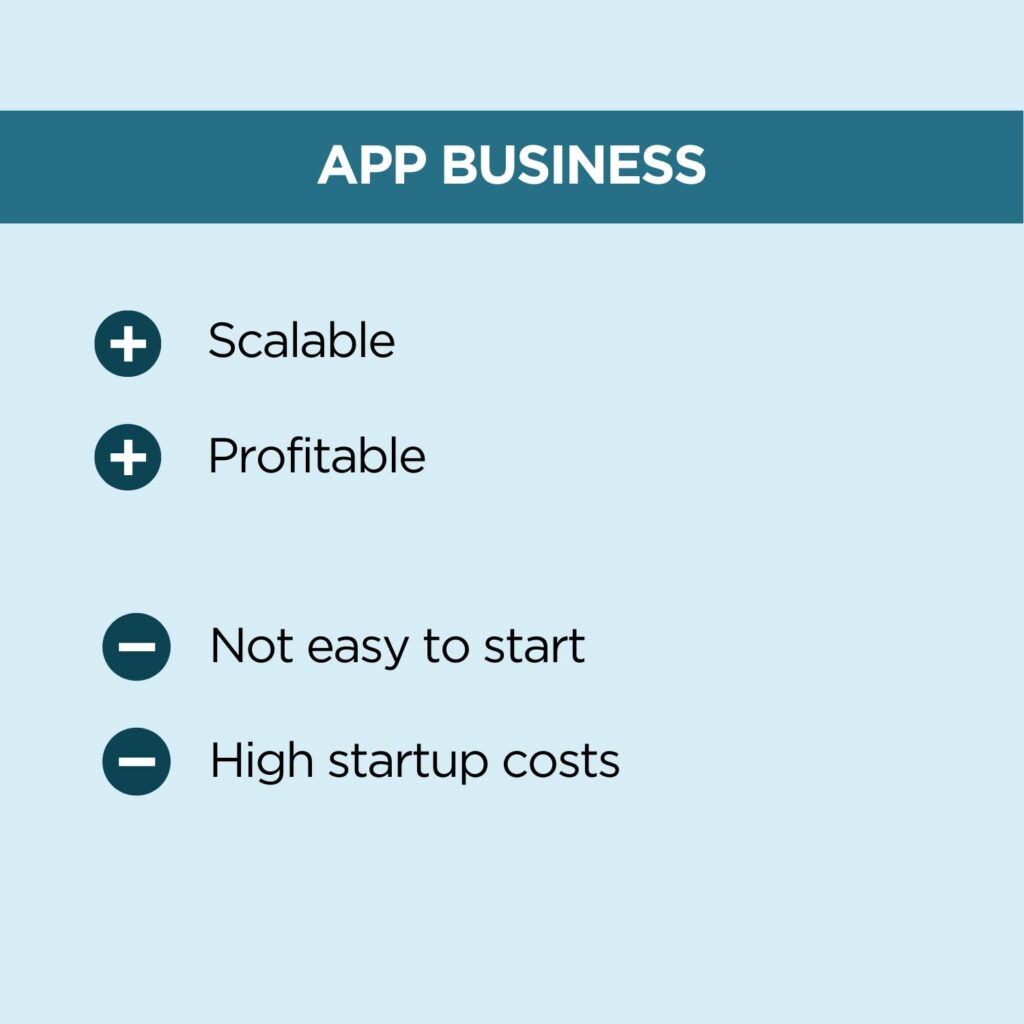
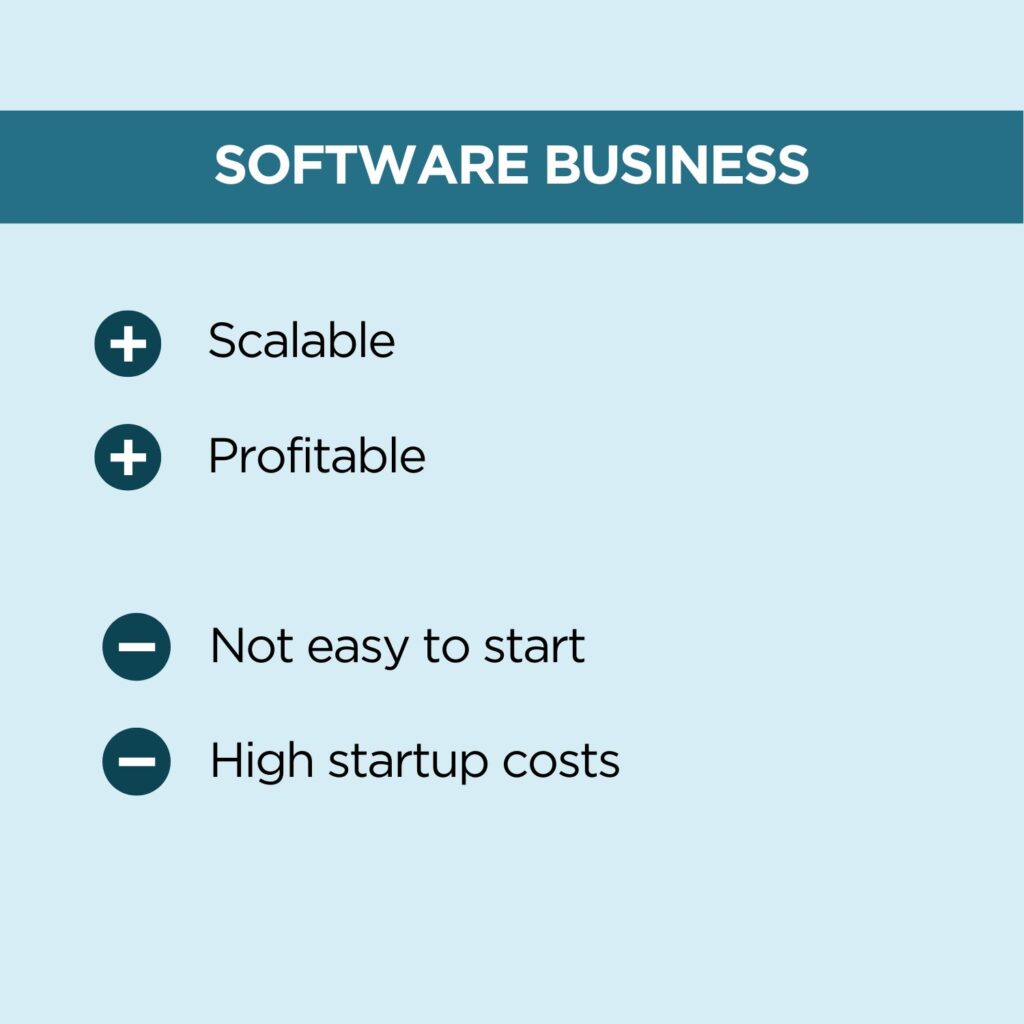







3 Responses
I choose #2, to be a Coach, Mentor and Consultant to those who choose to create an ExtraOrdinary Lifestyle!
Hi Luisa!
It would be great if all models could be used combined! Imagine how powerful that would be (or not?).
The affiliate marketing/joint venture one is definitely not for me.
However, the business models #2: Coaching/Consulting – #7: The Group Programs Model – and #3: Information Products/e-Learning – all seem very appealing!
Andrew
Hi Andrew! These can absolutely be combined – I myself do/have done a combo of these, including the three you mentioned!